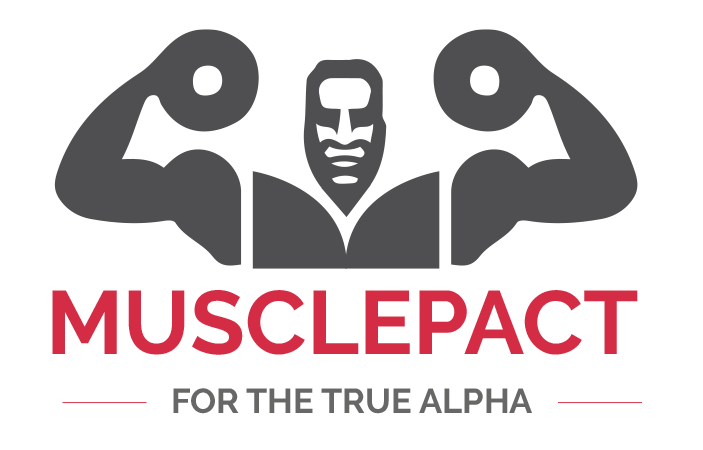In muscle and fitness, we often focus on the physical – the weights we lift, the miles we run, and the food we eat. What about the mental side, though? Mental strength is a thick foundation for physical prowess. It’s the hidden fuel that keeps us moving through plateaus, empowers us to surge through setbacks, and finally, it’s the secret sauce that releases our potential.
What is Mental Strength?
Having mental strength doesn’t mean that you don’t have emotions or that you never feel doubtful. Instead, it is the ability to regulate your thoughts, emotions, and behaviors in a way that prepares you for success, regardless of the challenges facing you. It’s about resilience, focus, and an unfaltering belief in yourself.
I believe mental strength is like a muscle. The more you train it, the stronger it gets. You can’t just suddenly know how to take on the pressures of life, just as you wouldn’t expect to lift those heavy weights without proper training.
Mental strength links athletes with their fans, too. They both experience amplified emotional reactions during close games. In this way, fans reflect the tension and thrill experienced by athletes, forging an emotional relationship that highlights the psychological intensity of these times.
Cornerstones of Mental Strength
Here are the key parts of mental strength:
- Self-Awareness: This is the core of mental strength. It is about how well you know your thoughts and feelings and how they impact your behaviors. What are your triggers? What are your strengths and weaknesses? Only when you know yourself, you can manage your reactions appropriately and make deliberate choices.
- Self-Regulation: Knowing your feelings is not enough, you have to work on regulating your feelings. This does not mean suppressing your emotions; it simply means coping with them in a healthy and significant manner. Interventions such as deep breathing, mindfulness, and cognitive reappraisal can be highly effective.
- Optimism: A positive mindset can be a game-changer. I’m not talking about blind optimism; it’s a pragmatic optimism that searches for opportunities and possibilities, even in the face of peril.
- Resilience: Life can throw you curve balls. Resilience is your capacity to recover from hardship, learn from failure, and keep going. It’s about life and approaching failures as learning opportunities instead of individual defeats.
- Grit: This is the combination of passion and perseverance that keeps you going when things get hard. It is about a long-term vision and the conviction to make things happen, regardless of the hurdles.
- Mindfulness: Focusing your attention on the present can relieve stress and anxiety. Practices of mindfulness (meditation, for example) can develop this skill in you.
How Mental Strength Can Help Athletes

Mindset During High-Stress Situations
Mental strength comes into play when stakes are high. Consider a powerlifter getting ready for a final attempt, a bodybuilder taking the stage, or just yourself attempting to set a personal best in the gym. At these times, pressure either breaks you or brings you up higher.
Performance Anxiety and Pressure Management
Mental strength defines the ability to endure pressure. Athletes with strong mental strength learn how to focus on what matters instead of what causes performance anxiety. This “clutch factor” is built through mental conditioning, visualization, and practicing remaining calm under pressure.
Think about football players under great pressure during big tournaments and seasons like the FIFA World Cup or UEFA Champions League. Mental strength helps them remain calm in the eye of the storm and get the job done.
Maintaining Focus and Momentum
Mental strength keeps athletes from growing complacent when ahead or succumbing to fear when behind. When you’re winning it’s easy to relax and when you’re losing it’s easy to give up, but mental strength helps athletes stay focused and work hard while the game is still going. I’ve watched many footballer and WWE fighters lose their advantage just because they lost concentration.
Emotions and Decision Making
In high-stakes moments, emotions can take over. To make good decisions, the ability to regulate emotions is important for mentally strong athletes. This is consistent with the idea of mindfulness, which has been reported to improve attention, regulation of emotional states, and self-awareness — all prerequisites for highly effective performance. All athletes need to contain their emotions throughout a match to not make any hasty decisions or lose their composure.
Building Confidence and Belief
Confidence is a pillar of psychological strength. The perception of skill enhances courageous, smart decision-making in the heat of competition. This belief usually comes from mental preparation and resilience developed in training. One of the ways I build this confidence is telling myself: “If I don’t believe in Me, who will?”
Learning from Setbacks

Resilience, the ability to recover from setbacks, is an important characteristic of mental strength. Learning from mistakes, but not dwelling on failures helps athletes to improve future performances. Cristiano Ronaldo, for instance, demonstrates mental strength by consistently excelling at the highest level despite facing criticism and adversity.
Application-Based Methods to Build Mental Fortitude
So, how can you cultivate mental strength in your life? These are some strategies that I have found most effective:
Set Realistic Goals
Set small goals that you can achieve regularly. It creates momentum and strengthens your belief in your capabilities. Once you feel comfortable, start increasing the level of your goals gradually.
Practice Mindfulness

Meditation for just a few minutes a day can help tremendously. Try meditating, paying attention to your breath, observing your thoughts without making judgments, and developing awareness of being present.
Use Visualization
Envision yourself as if you have achieved your goals. However, ask yourself questions like how would it work, what would be the challenges, and how you can overcome those challenges. Visualization is a common method we use to increase confidence and prepare for challenging or stressful situations that may arise in the real world.
Develop a Positive Self-Talk
When you speak to yourself, pay attention. Change negative thoughts with positive affirmations. Reassure yourself about your skills, previous achievements, and your ability to handle challenges.
Embrace Challenges
Don’t run away from struggles. See them as learning and growing opportunities. Making a bold decision can take you out of your comfort zone, forcing you to develop new skills, flexibility, and psychological resilience.
Learn from Failure
Don’t dwell on your mistakes. Instead, analyze what happened, and where you could improve, and develop a plan for moving forward. And remember that we learn a lot from our failures.
Build a Support System
Surround yourself with people who are positive and supportive of you. Be open and share your objectives and challenges with them — and ask for their support and advice.
Practice Gratitude

Each day, take a moment to reflect on what you have going well in your life. This can help you transition from focusing on what you don’t have to what you do have. Thus, you increase your overall sense of well-being and hopefulness.
Prioritize Self-Care
Look after your body and mental health. Sleep enough, eat healthy, exercise regularly, and do activities you like. When you feel good, you can handle stress, challenges, and all that life throws at you.
Seek Professional Help
For anxiety, depression, and other mental health problems, seek professional help if you need it. Working with a therapist or counselor can equip you with the tools and support you need to get through these hurdles and gain mental strength.

Mental Strength: The Ultimate Performance Enhancer
To sum up, mental strength is not just a luxury but a necessity for any athlete wanting to achieve their goals. It’s the root where physical strength grows and the secret to unleash that inner athlete. If you care to redefine your mindset by developing self-awareness, self-regulation, optimism, resilience, and grit, the outcomes will be significant.
I wholeheartedly believe that if you specifically use these steps in your day-to-day life, you will create a solid foundation of mind power to assist you in anything. So, begin pushing your mental muscle today, and set yourself free as a champion!
Learn how long it takes for muscles to grow. And don’t forget to follow us on Facebook for even more guides.
Sources:
- www.trine.edu/academics/centers/center-for-sports-studies/blog/2021/mental_toughness_the_key_to_athletic_success.aspx
- www.frontiersin.org/journals/psychology/articles/10.3389/fpsyg.2023.1195721/
- www.redalyc.org/journal/6638/663873428004/html/
All images are AI generated with canva.com






